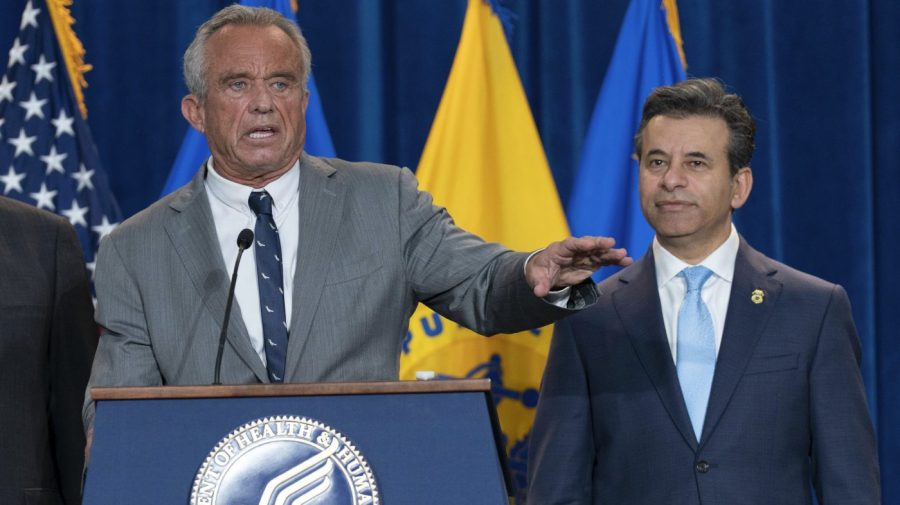A November meeting of an influential preventive services advisory committee has been postponed by the Department of Health and Human Services (HHS), citing the government shutdown.
The 16-member U.S. Preventive Services Task Force (USPSTF) has not held a formal meeting since March. HHS Secretary Robert F. Kennedy Jr. canceled a July meeting where the panel was supposed to discuss steps to prevent cardiovascular disease.
Task force members meet in person three times a year — in March, July and November.
“The USPSTF’s November meeting has been postponed due to the Democrat-led shutdown. The Trump Administration is committed to reopening the government so meetings like this one can occur,” HHS spokesperson Emily Hilliard said in an email.
“The Secretary looks forward to working with the USPSTF to Make America Healthy Again.”
The task force is composed of medical experts who serve four-year terms on a volunteer basis. They are appointed by the HHS secretary and are supposed to be shielded from political influence.
The task force reviews reams of scientific evidence to make recommendations on services such as cancer screenings, HIV-prevention medications and more. It makes its recommendations using a grading scale, and ObamaCare requires insurers to cover services the task force recommends with a “grade” of A or B at no cost to patients.
The Wall Street Journal reported in July that Kennedy was considering firing the panelists because they were too “woke,” but no action has been taken.
“The task force has done very little over the past five years, and we want to make sure it is performing, and it is approving interventions that are actually going to prevent the health decline of the American public. And it hasn’t,” Kennedy said at a press conference in August.
The Supreme Court in June upheld the structure of the panel in a case originally focused on a recommendation to cover certain HIV-prevention drugs. The ruling asserted Kennedy has the power to hire and dismiss panelists at will, as well as to potentially delay or veto the recommendations they issue — something no prior administration has done.
Aaron Carroll, president and CEO of AcademyHealth, an organization that advocates for health services researchers, questioned why the shutdown would impact the task force, as its members aren’t government employees.
Carroll said the task force has been trusted by patients and clinicians across the country for the past 40 years, and he is concerned HHS could undermine that credibility.
“I would hope that an administration which wants to focus on, ‘How do we improve chronic disease, how do we prevent bad things from happening,’ would be interested in having the task force that focuses on preventive care meet and make changes,” Carroll said.
“This directly affects the practice of clinical care and the health of Americans,” Carroll added. “The reason that we do prostate cancer screening the way we do is the USPSTF. The reason that we have colon cancer screening is the USPSTF. … And when the meetings don’t happen, the work doesn’t happen and therefore nothing gets improved in any way for the American people.”

